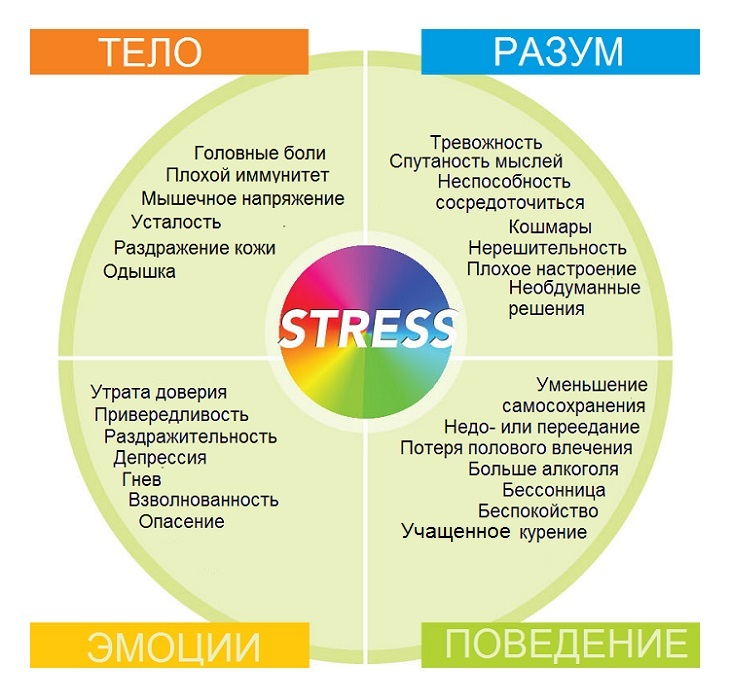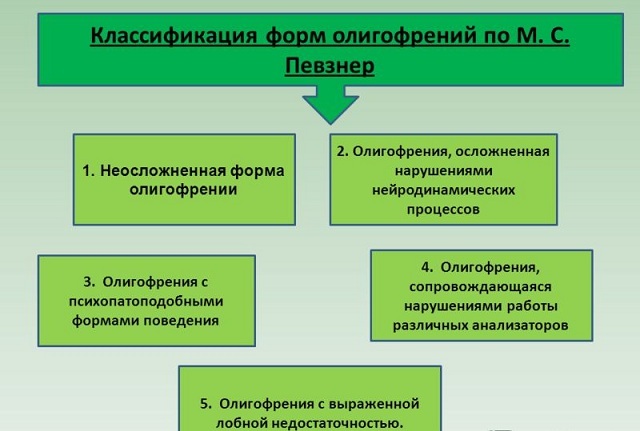 The concept of "stress" in recent decades has become very firmly established. The term itself refers to emotional dysfunction and stress, which are always accompanied by a negative mood. He came to us from medieval England, where "distress" meant grief or need.
The concept of "stress" in recent decades has become very firmly established. The term itself refers to emotional dysfunction and stress, which are always accompanied by a negative mood. He came to us from medieval England, where "distress" meant grief or need.
Stress is the body's ability to adapt to the changing conditions of life. In the modern rhythm of life, conditions change not only every day, but every hour. Therefore, we can say with certainty that stressful situations have become commonplace.
Under stress we mean a feeling of dissatisfaction, a bitterness of loss or a seasonal spleen, but in spite of common signs this phenomenon has several kinds, subspecies, stages of development and phases. Let us consider them in more detail.
Three stages of stress
G. Selye, a Canadian researcher and a doctor, found out that each organism has the same reaction to stress, based on this pattern, he broke the entire process into 3 phases:
- The alarming reaction of , in which all the protective functions of the body are mobilized. The organism adapts itself to the new conditions of existence. Thanks to the functional assemblage of organs and vital systems, feelings such as memory, attention, touch, perception are amplified. The stage of mobilization is characterized by the fact that stress increases the level of thinking, there are solutions to the problem, and the person copes with the load that has appeared. Stage of anxiety.
- Resistance to the imbalance of , when the body adapts to changes, and all parameters that came out of control at stage 1 are normalized. The individual is accustomed to a new atmosphere, but if the body is difficult to adapt quickly, and resistance lasts for a long time, the last phase of stress sets in. The stage of resistance.
- Depletion of occurs after unsuccessful attempts at adaptation, when physical forces are lost, and the mental state begins to malfunction. This phase is divided into 2 stages.
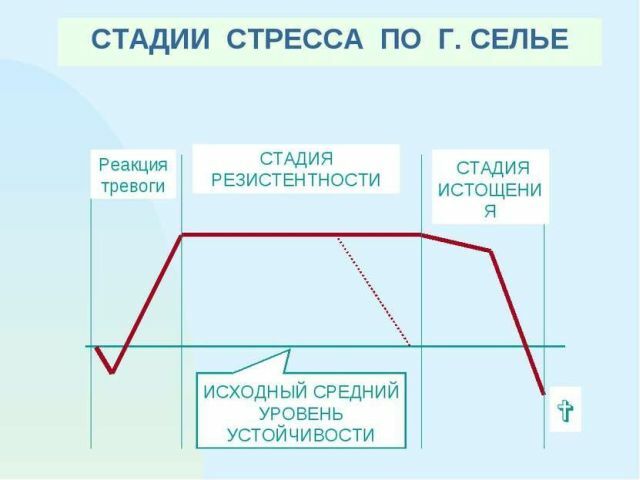
Stages of stress on Selje visually
The stage of stress depletion goes through two stages:
- At the stage of the disorder, the working capacity decreases, the level of thinking and perception decreases, it becomes difficult to find a way out of the circumstances. A person can not adequately assess the situation and take any decision. This affects the results of the work, creative thinking is replaced by a simple repetition of the action algorithms. If this process touched the leadership, then impulsive demands for employees begin, inadequate aggressive attacks in their direction. The way out is randomly selected from the list that emerged during the first stage of stress.

- At the phase of the destruction, all processes are braked. A person falls into a stupor, it is difficult for him to concentrate on important things, he does not delve into the essence of the conversation, goes into himself and keeps silent. This kind of destruction is called hyper-inhibition. This phenomenon can develop and other "channel", when a person who does not find a place, makes rash acts, his activity is disorderly. He becomes closed, before it is difficult to scream or "reach out".This kind of stress is called hyperexcitation.
During the phase of exhaustion, there are various diseases that affect:
- gastrointestinal tract;
- cardiovascular system;
- mental state;
- immunity;
- condition of hair, nails and skin.
Stress classification - species and subspecies
The duration of the stress is:
- short-term;
- episodic;
- chronic.
Stress is divided into groups according to the reasons that triggered its occurrence:
- unfulfilled hopes;
- excitement before the start;
- lost time;
- changes in life;
- monotony of life;
- occurrence of passivity;
- unattainability of perfection;
- sudden changes;
- satiety with benefits;
- achievement of the set goals.
Stress depends on many factors that determine the kind of emotional overstrain. These are domestic conflicts, dissatisfaction with life, salary, position, fear of being useless to society, lack of time, constant change of time zones, hierarchy of relations between employees and management.
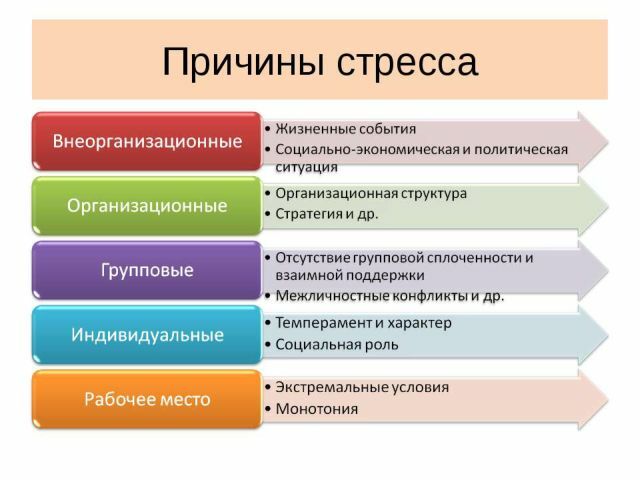
The reasons are numerous and they are divided into 3 groups:
- eliminated stressors;
- stressors undergoing weakening;
- constant stressors.
14 stages of Torsunov stress development:
The light and dark side of
We are used to the fact that stress is always negative consequences, called distress, but there is also a positive side of this phenomenon - eustress:
- The distress of is characterized by a disbalance of the physiological and psychological parameters of the body. It can be short-term and quickly reach the "boiling point", or takes a chronic character and entails the disruption of all vital systems.
- Eustress can be determined by a burst of joyful emotions and a positive attitude of a person. This happens when he knows about the approaching problem situation, does not know how to solve it, but hopes for a successful outcome of the matter. For example, an interview for a well-paid position or entrance examinations at an educational institution. Such stress is necessary for solving everyday problems that arise, because it mobilizes all forces for a positive outcome. For example, despite the hated morning bell of the alarm clock, he makes you cheer up and wake up. Eustress, having a weak strength, is useful for human health and positions itself as a "wake-up reaction".
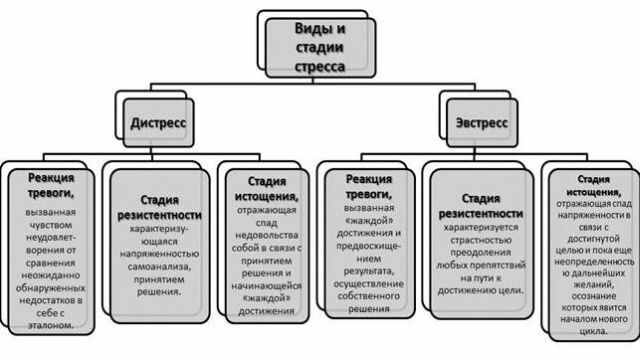
Subspecies of distress
The most common subspecies of distress is physiological stress. It occurs when external factors influence the human body. If you are burned or hungry, overheated in the sun and pinch your finger, you can not do without stress shocks. At the physiological level, stress is divided into several groups:
- biological is associated with the occurrence of various diseases;
- chemical stress caused by the effects of chemistry, as well as oxygen starvation or an overabundance of oxygen);
- physical is provoked by excessive physical exertion, professional athletes are exposed to it;
- mechanical occurs during the postoperative period, when complex injuries occur that disrupt the integrity of tissues or organs.
The next subspecies are psychological stress, which is characterized by two types of conflict:
- Self-discontent associated with the mismatch between the expectation and reality of .Such a conflict is most often found in people who can not accept the age-related changes in appearance and the body as a whole.
- Stressful state due to social conflicts inside public cell .For example, intra-family conflicts, quarrels with friends or colleagues.
Emotional stress occurs when an emotional stimulus is applied to a person. Such irritants become  conflicts, when a person for a long time can not meet biological or socio-cultural needs.
conflicts, when a person for a long time can not meet biological or socio-cultural needs.
For example, a strong resentment for a loved one, deception, as well as information congestion, which occurs, usually in preparation for exams, the submission of annual reports. In the course of many years of research it became clear that stress is individual for each person and leads to different consequences.
It is interesting that people with increased stress resistance quickly cope with extreme situations. Those who have an index understated may encounter neuroses, high blood pressure, a violation of the vital vital systems of the body. What will suffer the most, depends on the individual characteristics and the presence of chronic diseases, because the load mainly goes to the weakest link.
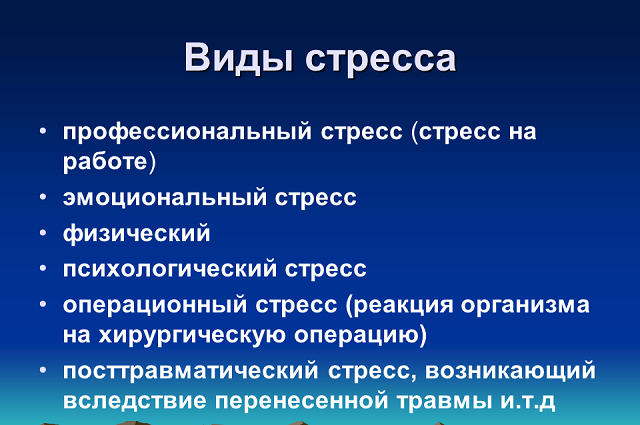
Types of people in stress situations
Each person reacts to sources of stress individually, each phase in different people can continue more or less in time. It depends on the stressfulness of the person, on his ability to quickly "bend" under the situation and find the right solution to solve the problem.
Specialists found out that there is a different reaction to stress, and identified 3 types of people:
- those who for a long time can withstand the stresses of the , while simultaneously in excellent shape and adequate mental state;
- those that, when a problem arises, lose the efficiency of the , they find it difficult to find a solution and adapt to the new conditions;
- are those that can work productively and show high results, only in the state of stress of , their problems are "spurred on" and forced to move forward.
Negative effects on humans
The emergence of stressful situations entails a number of negative aspects that affect the behavior and condition of a person.
Many parameters of the normal functioning of the body are violated.
Decreased physiological activity: 
- worries;
- coordination is disrupted;
- there is stiffness of movements;
- suggests unexpected tears or laughter;
- hyperhidrosis appears;
- violation of appetite and day regimen.
The psychological state is disrupted:
- dissipates attention;
- memory functions are violated;
- increases speech activity or, conversely, is inhibited;
- accelerates or slows down thinking, including creative;
- violates the perception of the surrounding reality;
- there is an unreasonable desire to argue with another person and find fault with him.
Performance deteriorates:
- reduces the quality of the work performed;
- disrupts plans and projects;
- high emotional excitement( inadequate disruption to colleagues).
Stress is a phenomenon that is closely intertwined with all aspects of a person's life. The emergence of complex situations does not always bear negative consequences.
A small impact of stressors on a person is useful in that it makes him think quickly, make decisions and do the right things. Mobilizes all the forces to remove the problem and makes it stress-resistant.

